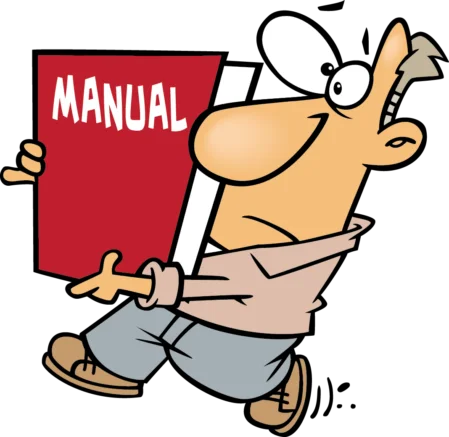Bookkeeping & Accounting Testing

What Do You Know ?
Use these free bookkeeping and accounting practice tests and quizzes to test your accounting and bookkeeping knowledge. These bookkeeping and accounting tests range in difficulty levels from easy to more difficult. Most of the questions cover material that was presented in my Bookkeeping Tutorials. Teachers can use the bookkeeping tests as an extra activity where their students can test their basic bookkeeping and accounting knowledge.
Hot Potato Test Instructions
These bookkeeping and accounting quizzes were created using Hot Potatoes free quiz software.
Most of the bookkeeping tests are True and False and Multiple Choice made up of 20-30 Questions.
You have the option to view the questions one at a time or have all the questions displayed all at once on your screen (Show All Questions Button at topr right corner of the screen).
For each question, select/click your answer (Question Mark) . A Pop-Up will display telling you whether you answered Correctly, Your Score, and the Questions Completed .
Click the OK Button.
If you answered incorrectly, a Sorry ! Try again message appears to allow you to select the Correct Answer. Click the OK Button.
Continue answering the additional bookkeeping questions by selecting the Right Arrow to move to the next question. Use the Scroll Bar located at the right of the screen to move thru the additional accounting questions if you selected the option of displaying all the questions at once.
When you complete the quiz your Final Score is displayed.
To Exit or Quit the accounting test click on the X or the Red Round Button located in the top right corner of your screen. To enter Full Screen Mode click on the Arrows located in the top right corner of your screen.

Bookkeeping & Accounting Tests By Topic
The bookkeeping quizzes and tests in this section are organized by topic.
Beginning Accounting & Bookkeeping
Difficulty Level: Easy
Think of this section as a buffet where a little bit of everthing regarding beginning accounting and bookkeeping is "served".

Topics covered include double-entry and single entry bookkeeping systems, types of business organizations, accounting equations, source documents, business transactions, types of accounts and the chart of accounts, debits and credits, inventory, payroll, cash management, special journals and ledgers, balance sheet, income statement, cash flow statement, and more.
Accounting & Bookkeeping Terms
Difficulty Level: Easy
Learning definitions and terminology is about as much fun as watching grass grow; but, it is necessary to the understanding of bookkeeping. Let's see what you know.
Crossword Puzzles
Test your knowledge of accounting and bookkeeping basic concepts and terms with these accounting and bookkeeping crossword puzzles.
Bookkeeping Word Scrambles
Bookkeeping Word Scramble Game 1
Test your knowledge of bookkeeping terms by unscrambling the words .In this game, the letters are shuffled randomly, and you've to find the correct word using those letters within 30 seconds. To make this bookkeeping word scramble game easier for you, there is a hint of the bookkeeping term too. If you get a 10 score you will win the game and if the timer is finished you loss the game.




Bookkeeping Word Scramble Game 2
Test your knowledge of bookkeeping terms again by unscrambling the words This is tougher ! No hints are provided. I have;however, provided you with a list below of the terms used in the game.
Words Used In Game: 'accounting', 'bookkeeping', 'asset', 'liability', 'debit', 'accounts payable', 'credit', 'equity', 'double entry', 'invoice', 'cash', 'break even', 'bookkeeper', 'accountant', 'accrual', 'depreciation', 'amortization', 'short term', 'long term', 'balance sheet', 'profit', 'income statement', 'cash flow', 'loss',
'source document', 'transaction', 'double entry', 'budget', 'equipment', 'trial balance', 'journal', 'ledger', 'payroll', 'corporation', 'partnership', 'sales', 'expense', 'revenue', 'cost', 'creditor', 'customer', 'account', 'accounting equation', 'capital', 'cash basis', 'stock', 'inventory', 'discount', 'net income', 'bottom line', 'loan', 'posting', 'work sheets'
Debits/Credits
Difficulty Level: Easy
Debits and Credits enable the double entry bookkeeping system to work. Unfortunately, the only way to tell if you've mastered debits and credits is to put you under the light and grill you. Let's see what you know.
Special Journals
Difficulty Level: Easy
Special Journals allow us to group like types of transactions together which are summarized and posted to the General Ledger. Let's see if you know what types of business transactions are recorded using these journals.
Cash
Difficulty Level: Easy
Cash is the lifeblood of all businesses. Topice covered include petty cash, bank reconciliations, cash forms and documents, cash journals, and cash budgets and projections.
Payroll
Difficulty Level: Medium
Test your understanding of payroll and the laws and forms you need to be familiar with.



Inventory
Difficulty Level: Medium
Keeping up with "stuff" is a headache; but, that's what inventories are about. See what you know about inventory rules and methods.


Chart Of Accounts
Difficulty Level: Medium
The chart of accounts is the skeleton of a bookkeeping and accounting system. Do you know how to properly set up a chart of accounts ?

Financial Statements
Difficulty Level: Medium
Financial Statements are the end result of financial accounting. What do you know about the Balance Sheet, Income Statement, Cash Flow Statement, and the Statement of Owner's Equity ?
Let's see.

